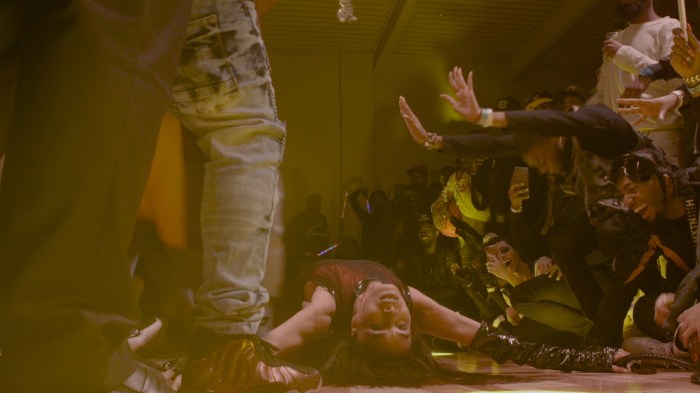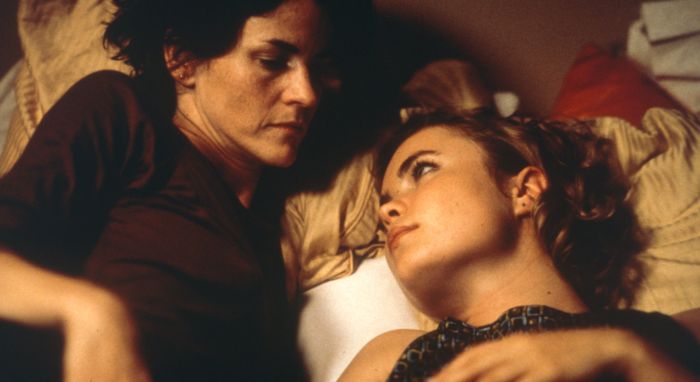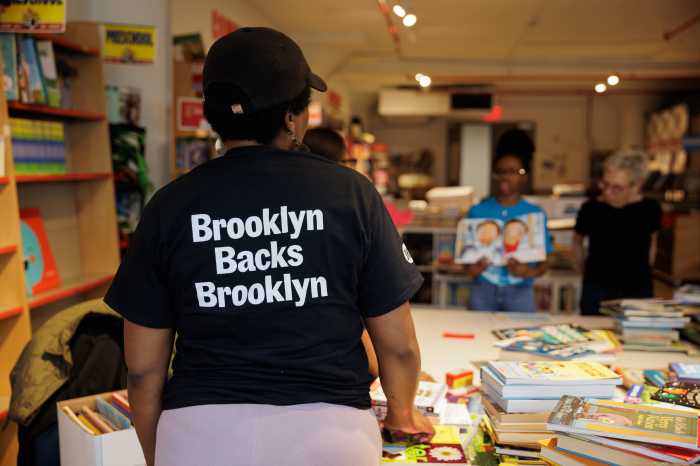Pierre Niney and Paula Beer in François Ozon’s “Frantz.” | JEAN-CLAUDE MOIREAU/ MUSIC BOX FILMS
BY GARY M. KRAMER | François Ozon’s latest film, the beguiling romantic drama “Frantz” — a period piece set largely in 1919 Germany and shot almost entirely in black and white — in some respects seems like an almost complete change of pace for the gay French filmmaker. Still, this compelling drama explores many of the writer/ director’s key themes.
The film, a reworking of Ernst Lubitsch’s “Broken Lullaby,” is set in Quedlinburg, where Anna (Paula Beer) visits the empty grave of her fiancé, Frantz Hoffmeister (Anton von Lucke), who was killed in World War I. One day, she spies Adrien (Pierre Niney) — a Frenchmen who has come to meet Frantz’s parents, Hans (Ernst Stötzner), and Magda (Marie Gruber) — at Frantz’s grave. Anna, who lives with the Hoffmeisters, develops a friendship with the Adrien, despite the small town’s disdain for the foreigner. As their relationship develops, Adrien eventually reveals his connection to Frantz, which sets in motion the rest of the story.
In a recent interview, Ozon explained that what appealed to him about the story was not the idea of remaking “Broken Lullaby” but rather his interest in creating a film about secrets and lies.
François Ozon explores how French soldier’s visit changes German family grieving after World War I
“I discovered a play written by the French writer Maurice Rostand,” the director said. “It was written after World War I, and it was about a young French solder who put flowers on a grave. I decided to make an adaptation. Then I realized that another director had made an adaptation in the 1930s, and it was Lubitsch. I was shocked and depressed. How could I remake Lubitsch? His film is strong and I enjoyed it, but since it was made in the 1930s it was done from another perspective. My approach was to show the point of view of a German and the girl. Lubitsch and the play were from the point of view of the French soldier. So in the play and in Lubitsch’s film, you know Adrien’s secret from the beginning. It was important for me not to give away the secret first, so the audience could discover it like Anna does in the middle of the film.”
Many viewers may suspect that Adrien’s relationship with Frantz is sexual, and scenes of the two men together have a tenderness that borders on romantic. Ozon acknowledged that he emphasized that element in his film.
“I think it was important for me to play with that,” he said. “You don’t know in the first part of the film who Adrien is and what his relationship with Frantz is. In today’s eyes, everyone projects something gay between the two guys. I like the journey of the film — you figure it’s an Ozon film, so it’s a love story between soldiers. But then you realize it’s something else.”
Ozon appreciates the complexity of Adrien’s — and by extension, Anna’s — situation. Their bond, he said, is essentially a “necrophiliac” love for Frantz.
“Adrien doesn’t know his desire or identity,” the filmmaker observed, praising Niney for his superb, layered performance.
“Pierre was obvious to cast, because he’s famous in France and he’s a workaholic,” Ozon continued. “He had to learn German, how to dance and play violin. He was fragile and feminine. I saw him in ‘Yves Saint Laurent,’ and he was touching in the part. He was perfect for Adrien. He understood the ambiguity of the character. It’s complex because Adrien is ‘acting’ all the time.”
Adrien is “acting,” Ozon explained, because he is a stranger to Anna and the Hoffmeisters. He infiltrates their household, changing all their lives. This narrative was also used in Ozon’s 2012 film, “In the House” and his dark 1998 comedy “Sitcom.”
Filmmaker François Ozon. | JEAN-CLAUDE MOIREAU/ MUSIC BOX FILMS
The filmmaker laughed at that connection, insisting, “It’s not the same tone as ‘Sitcom!’ It’s not uncommon to put a foreigner in the family and change everyone. Pasolini did it in ‘Teorama.’ In ‘Sitcom,’ it was a pet rat in the house. In this case it’s a French soldier entering this German family who are suffering. I like the idea that people are suffering so much they accept life and want a beautiful story about their son and they believe what Adrien says. I love the idea that a foreigner can change people. It’s a paradox. ‘Frantz’ is about how to unite a family; ‘Sitcom’ about disturbing and destroying the family.”
The film underscores the mood of xenophobia in both Germany and France at that time. The parallels to today are impossible not to notice, but Ozon demurred on the question of whether that was his objective.
“I didn’t know when I began to work on the script that the film would be political,” he said. “That Brexit or Trump would happen. But I felt there was a rise of nationalism and fear of foreigners and new borders and building a wall, so a story of the past can resonate today.”
He continued, “Since history repeats itself, it’s important to understand the past to see what happens today in the world. I realized how the film touches young people today because when you see what’s happening in the world, there are many reasons to be afraid of the future. After World War I in Germany, there were the roots of the Nazis, which destroyed all Europe during World War II. So it’s important to look at the past to look at the present.”
FRANTZ | Directed by François Ozon | Music Box Films | In German and French with English subtitles | Film Forum, 209 W. Houston St., btwn. Sixth Ave. & Varick St.; Filmforum.org | Lincoln Plaza Cinema, 1886 Broadway at W. 62nd St. | lincolnplazacinema.com




































